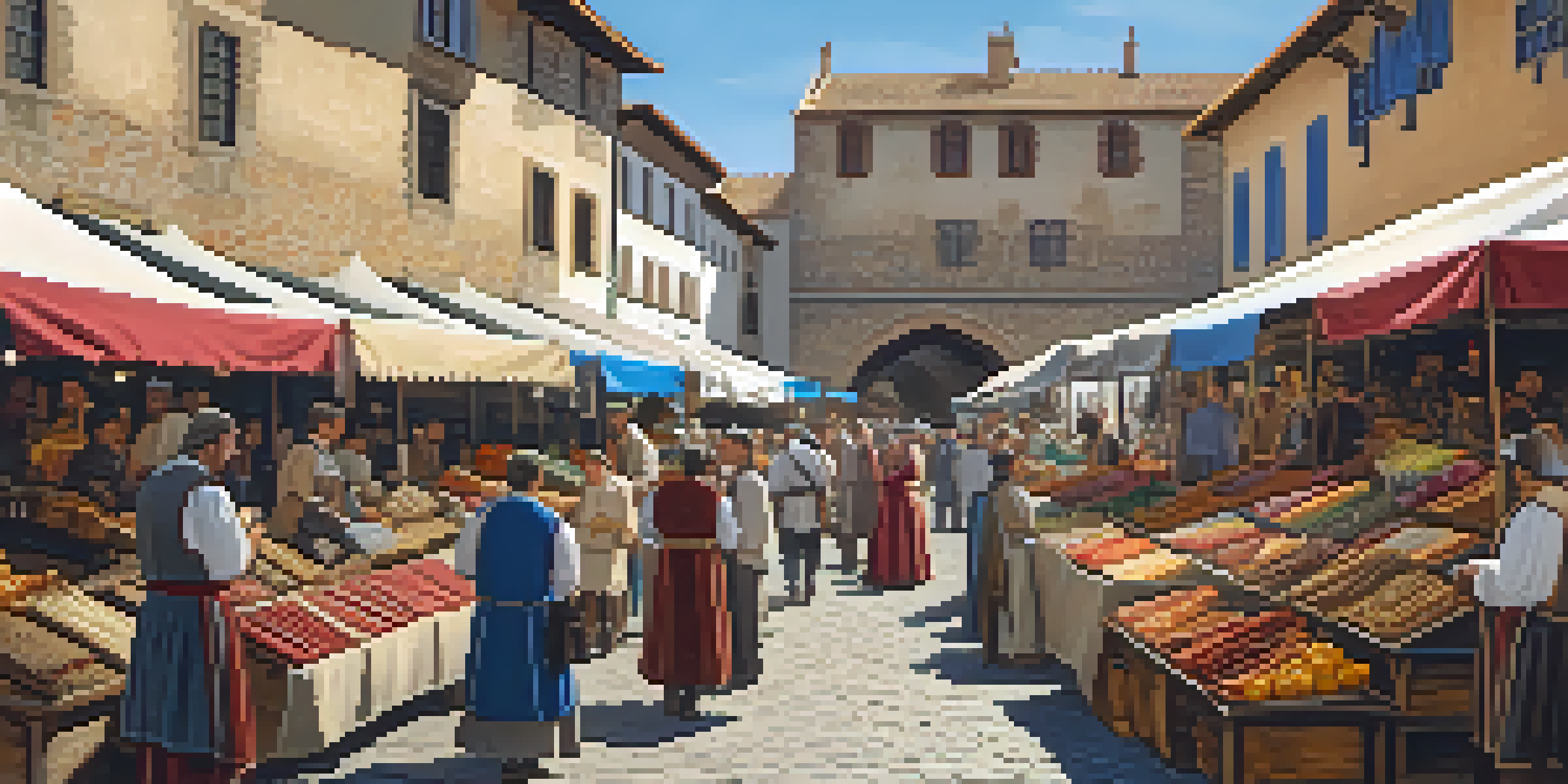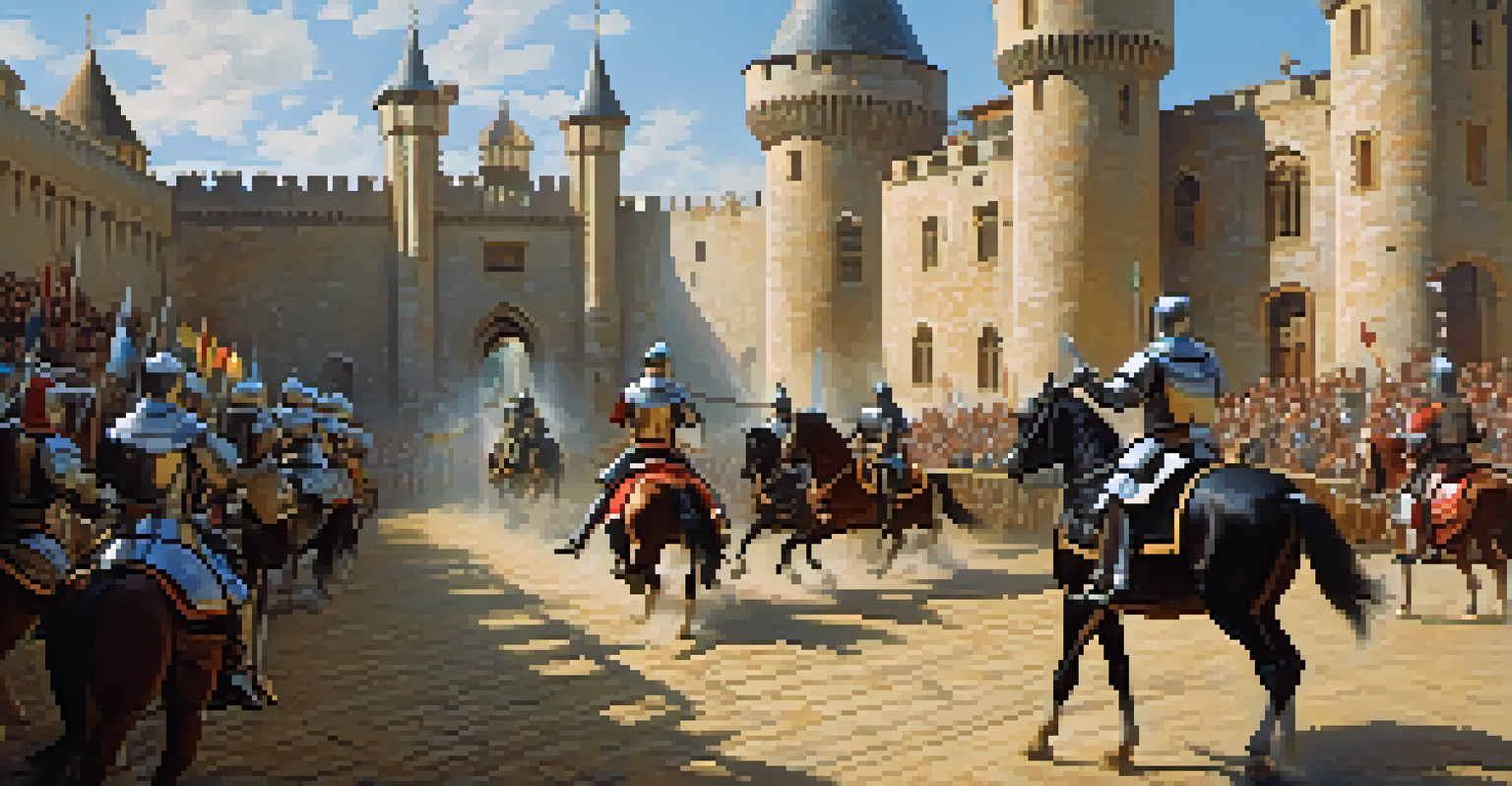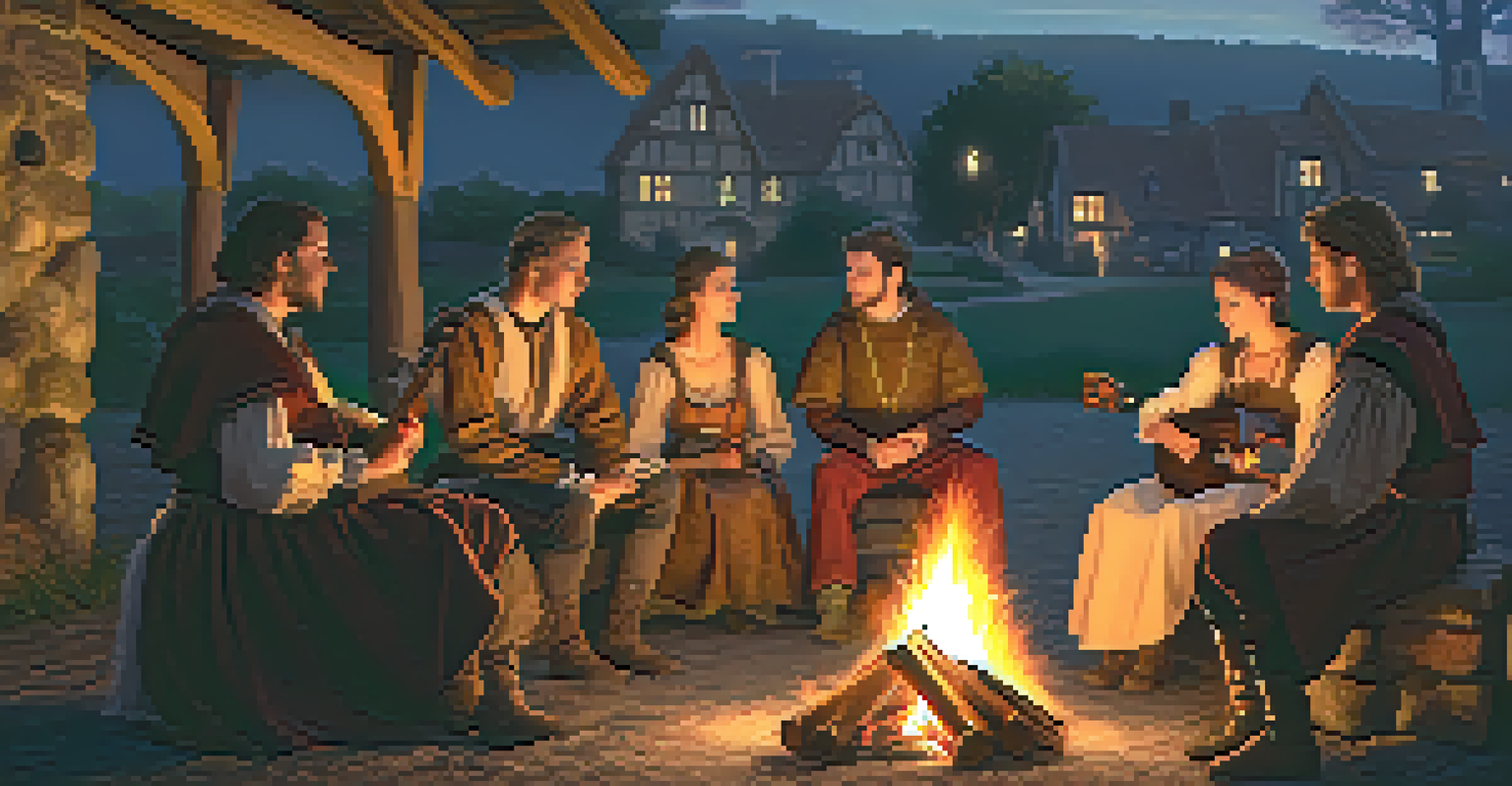Experiencing the Middle Ages: Spain’s Historical Reenactments

Introduction to Historical Reenactments in Spain
Historical reenactments transport us back in time, allowing us to experience history firsthand. In Spain, these events vividly bring the Middle Ages to life, showcasing the rich tapestry of cultural heritage. From knights in armor to lively marketplaces, reenactments paint a picture of daily life during this fascinating period.
History is not a burden on the memory but an illumination of the soul.
These events are not just for history buffs; they invite everyone to engage with the past in a tangible way. Participants often dress in period costumes, creating an immersive atmosphere that captivates visitors of all ages. This sense of involvement enhances understanding and appreciation of the historical context.
As we explore these reenactments, we’ll uncover the various themes and events that define Spain's medieval history. Each reenactment serves as a window into the past, revealing stories of bravery, tradition, and community.
Key Locations for Medieval Reenactments
Spain boasts numerous locations where historical reenactments flourish, each with its own unique character. Cities like Toledo and Ávila are renowned for hosting events that reflect their medieval significance. The stunning architecture of these cities provides a dramatic backdrop, enhancing the overall experience.

In addition to these cities, smaller towns also participate in the revival of their medieval heritage. Festivals in places like Caravaca de la Cruz and Ronda attract visitors eager to witness the spectacle of knights, jousts, and traditional crafts. These locations often have deep historical roots, making the reenactments even more meaningful.
Spain's Rich Medieval Reenactments
Historical reenactments in Spain vividly bring the Middle Ages to life, showcasing the nation's cultural heritage through immersive events.
Whether you’re wandering through the narrow streets of a medieval town or watching a jousting tournament in a grand castle, each location offers a unique glimpse into Spain's history. These settings not only enchant but also educate visitors about the cultural significance of the Middle Ages.
The Role of Costumes and Authenticity
Costumes play a pivotal role in historical reenactments, helping to create an authentic atmosphere. Participants often spend considerable time crafting garments that reflect the styles of the medieval era, from noble attire to peasant clothing. This attention to detail adds depth to the experience, allowing spectators to visualize life in the Middle Ages.
The past is never dead. It's not even past.
Authenticity extends beyond clothing; it also includes weapons, tools, and even the language used during reenactments. Many groups conduct extensive research to ensure accuracy, often consulting historians and experts. This commitment to detail enriches the narrative and fosters a deeper understanding of historical events.
As spectators, we can appreciate the effort put into these reenactments, which often result in breathtaking displays of artistry and craftsmanship. The dedication to authenticity not only honors history but also enhances the overall enjoyment of the event.
Popular Festivals Celebrating the Middle Ages
Several festivals in Spain are dedicated entirely to celebrating the Middle Ages, drawing crowds from around the world. One standout event is the Festival of the Three Cultures in Toledo, which showcases the harmonious coexistence of Christian, Muslim, and Jewish cultures. This festival features reenactments, music, and food, offering a holistic view of medieval life.
Another notable event is the Medieval Market of Ávila, where visitors can immerse themselves in medieval commerce. Stalls filled with traditional crafts, local delicacies, and artisans at work create a bustling market atmosphere reminiscent of centuries past. The vibrant energy is contagious, making it a favorite among locals and tourists alike.
Community Engagement in Events
Local residents actively participate in organizing reenactments, fostering a strong sense of pride and connection to their historical roots.
These festivals are not just about entertainment; they also serve as educational platforms. By engaging with history in a fun and interactive way, attendees leave with a greater appreciation of the cultural influences that shaped Spain during the Middle Ages.
The Importance of Community Involvement
Community involvement is at the heart of Spain's historical reenactments, as local residents often take an active role in organizing and participating in events. This grassroots approach fosters a sense of pride and ownership among participants, who are eager to share their heritage with others. By coming together, communities create a vibrant tapestry of stories and traditions.
Many reenactment groups are formed by locals who share a passion for history and culture. Through rehearsals and planning, friendships develop, turning these events into communal celebrations. The sense of camaraderie enhances the overall experience, making it a true reflection of local history.
Moreover, community participation ensures that traditions are passed down through generations, keeping the spirit of the Middle Ages alive. These events become a way for families to connect with their history, creating lasting memories and fostering a love for the past.
Educational Opportunities Through Reenactments
Historical reenactments in Spain offer invaluable educational opportunities for both participants and spectators. Schools often organize field trips to these events, allowing students to witness history in action. This experiential learning approach makes history lessons more engaging and memorable.
Additionally, many reenactors are knowledgeable about the historical context of their roles, providing insights and answering questions from curious onlookers. This interactive aspect encourages dialogue and deepens understanding, making history accessible to all. It's not uncommon for visitors to leave with newfound knowledge about Spain's medieval past.
Educational Value of Reenactments
These events serve as engaging educational platforms, making history accessible and inspiring a love for Spain's medieval past.
As we embrace these educational opportunities, we recognize the power of historical reenactments as teaching tools. They bridge the gap between text and experience, inspiring a love for history that can last a lifetime.
Conclusion: Embracing Spain's Medieval Legacy
Experiencing the Middle Ages through Spain's historical reenactments offers a unique lens through which to view the past. These events not only entertain but also educate, connecting us to our shared heritage in profound ways. Each reenactment serves as a reminder of the stories, cultures, and traditions that have shaped Spain.
As we participate in these celebrations, we become part of a living history that transcends time. The passion and dedication of participants bring the medieval era to life, allowing us to appreciate the beauty and complexity of this period. The sights, sounds, and stories resonate long after the events have ended.

So, whether you're a history enthusiast or a curious traveler, consider immersing yourself in Spain's historical reenactments. You'll leave with a deeper understanding of the Middle Ages and the vibrant legacy that continues to influence modern Spain.